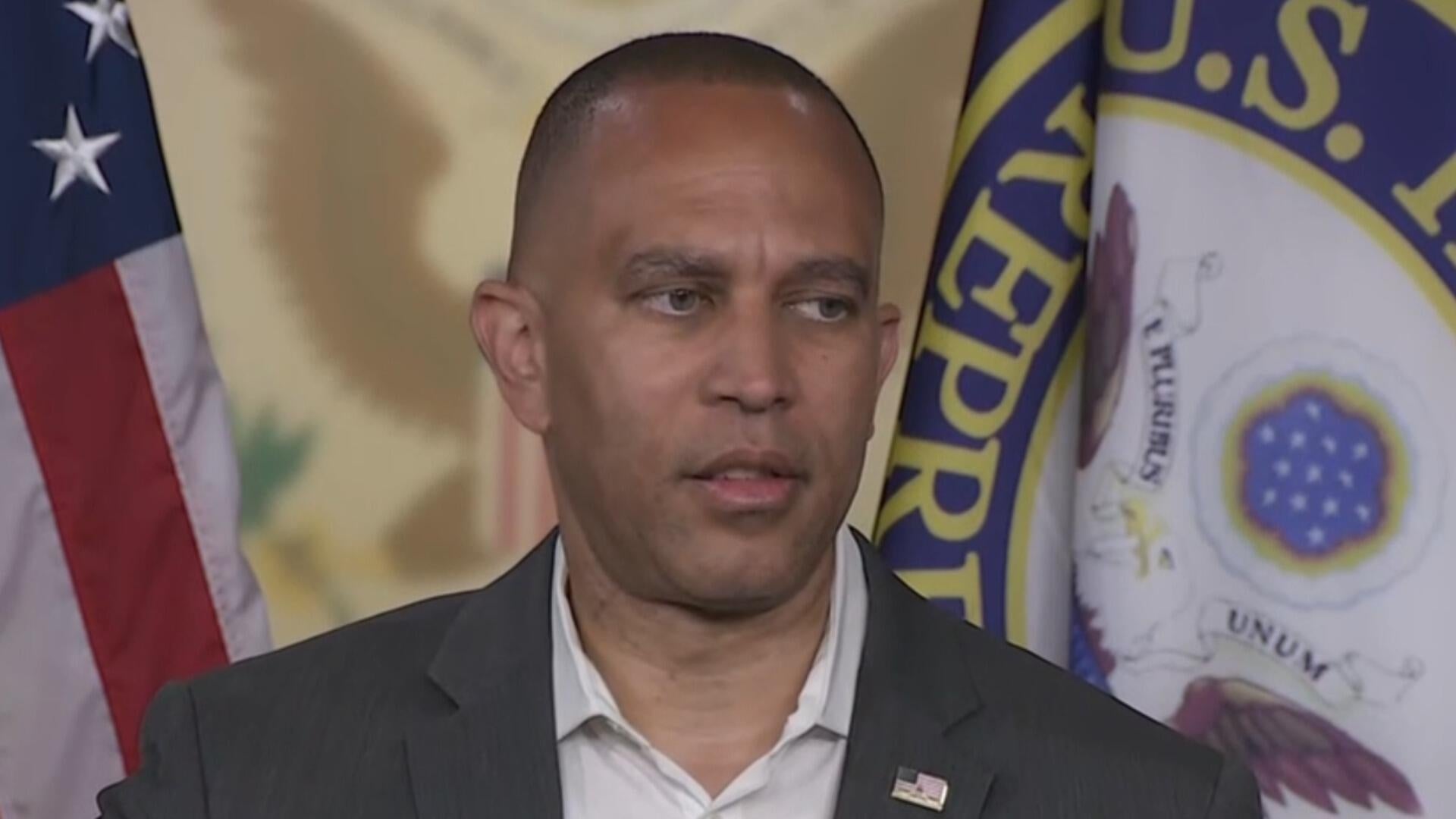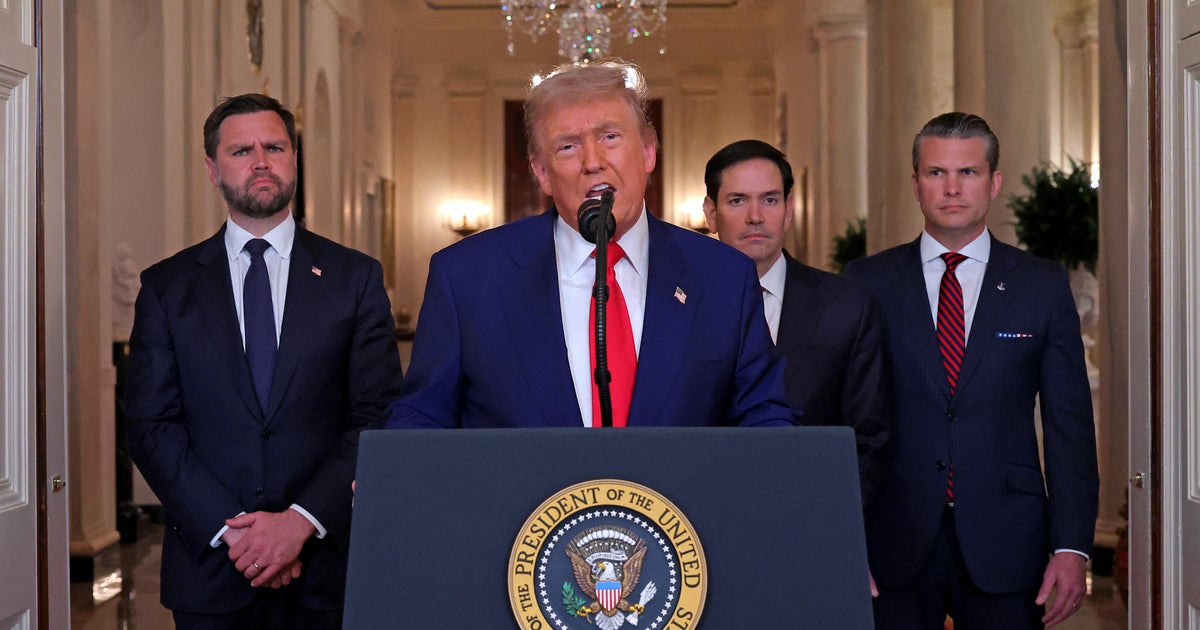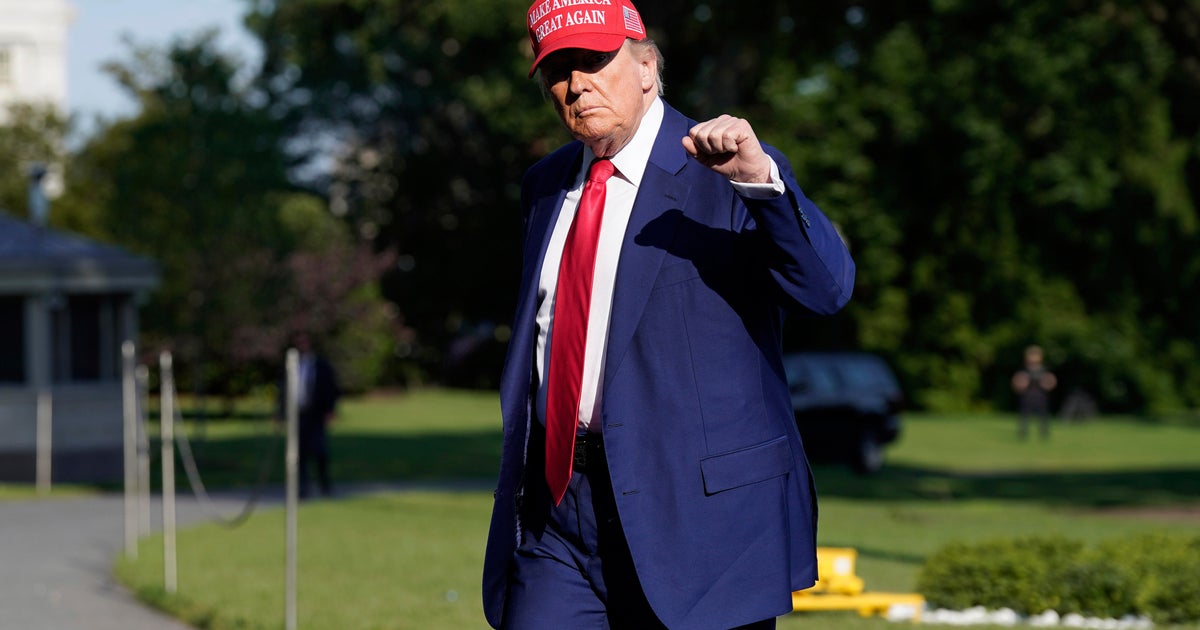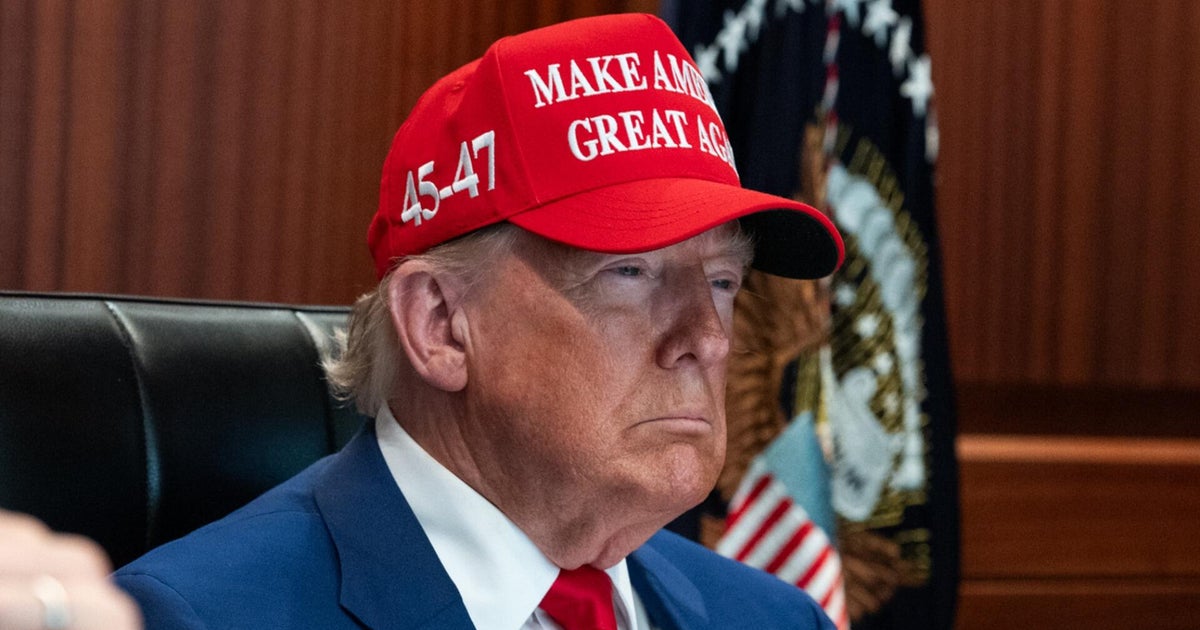Trump's strike against Iran divides Congress on war powers
Washington — President Trump's strikes on Iranian nuclear sites over the weekend sparked bipartisan efforts to force a vote to reassert Congress' power to declare war, though House Speaker Mike Johnson says the push is now irrelevant because Mr. Trump announced Israel and Iran have agreed to a ceasefire.
"It's kind of a moot point now, isn't it?" the Louisiana Republican said Monday evening. "It seems rather silly at this point and I hope they'll acknowledge it as such and put it to bed because it has zero chance of passing anyway."
Israel and Iran have not commented on Mr. Trump's ceasefire announcement.
As Mr. Trump last week weighed whether to use direct military force against Iran, a bipartisan contingent of lawmakers demanded that the president seek congressional approval before moving forward with any action.
Several war powers resolutions were introduced in both chambers before Saturday's strikes to prevent the U.S. from becoming involved in the war between Iran and Israel. The resolutions would require Congress to authorize force against Iran, preventing the president from taking unilateral action. Lawmakers backing the resolutions have emphasized that only Congress has the power to declare war under the Constitution.
Following the U.S. attacks on Iran's nuclear sites, Reps. Thomas Massie, a Kentucky Republican, and Ro Khanna, a California Democrat, called on Congress to reconvene immediately to vote on their war powers resolution, which has dozens of cosponsors.
House members across the political spectrum, from Republican Rep. Marjorie Taylor Greene of Georgia to Democratic Rep. Alexandria Ocasio-Cortez of New York, have come out against a conflict with Iran, indicating that the resolution could have broad support and pass.
But Johnson indicated earlier Monday that it might not get a vote, telling reporters that it's not the "appropriate time" for a war powers resolution.
"For 80 years, presidents of both parties have acted with the same commander-in-chief authority under Article Two," Johnson said. "The president made an evaluation that the danger was imminent enough to take his authority as commander in chief and make that decision."
Massie said he would not force a vote on the resolution if the ceasefire holds and the U.S. is not engaged in "hostilities" toward Iran.
"Then it's a moot point," he said, calling the situation "wait and see."
Meanwhile, top Democrats in Congress said they were still in the dark about Mr. Trump's decision to bomb three nuclear sites in Iran Saturday, even as Iran launched retaliatory strikes Monday.
House Minority Leader Hakeem Jeffries, a New York Democrat, said Monday afternoon that he still hasn't been briefed by the White House. Jeffries received a brief call shortly before Mr. Trump announced the strikes to the public on Saturday, according to a source familiar with the call.
Jeffries told reporters the notification was a "courtesy call with no explanation as to the rationale" for the U.S. military involvement in Iran and accused the president of potentially misleading the public.
He wants to know, "What is the administration hiding?" And Jeffries added that he has asked the administration to brief congressional leaders and the top Democrats and Republicans on the intelligence committees on the escalating conflict. "It has yet to occur, and it's not clear to me what the administration is hiding from the Congress and from the American people."
A spokesperson for Senate Minority Leader Chuck Schumer, a New York Democrat, said he received a similar notification "without any details" before the strikes on Iran.
In a statement Monday after Iran retaliated, Schumer said he's asked the Trump administration to give him a classified briefing on "the full threat picture, the intelligence behind Iran's retaliation, and the details, scope and timeline of any U.S. response."
"The Trump administration should not make the same mistake it made this weekend by launching strikes without giving any details to Congress," Schumer said.
Jeffries also said he was not briefed earlier Monday before Iran launched missiles toward a U.S. base in Qatar.
But Johnson said he had received a classified briefing on the situation Monday morning.
"The retaliation was expected," Johnson told reporters.
The Trump administration is expected to brief all House and Senate lawmakers on the situation on Tuesday.
Jeffries said the administration has not presented Congress with any evidence that Iran posed an imminent threat requiring immediate military action.
"What was the imminent threat to the United States of America?" Jeffries said. "There's been no evidence to present an imminent threat."
In the Senate, a similar resolution has been introduced by Democratic Sen. Tim Kaine of Virginia. Asked about vote timing Monday, Senate Majority Whip John Barrasso, a Wyoming Republican, said the Senate could vote "this week."




